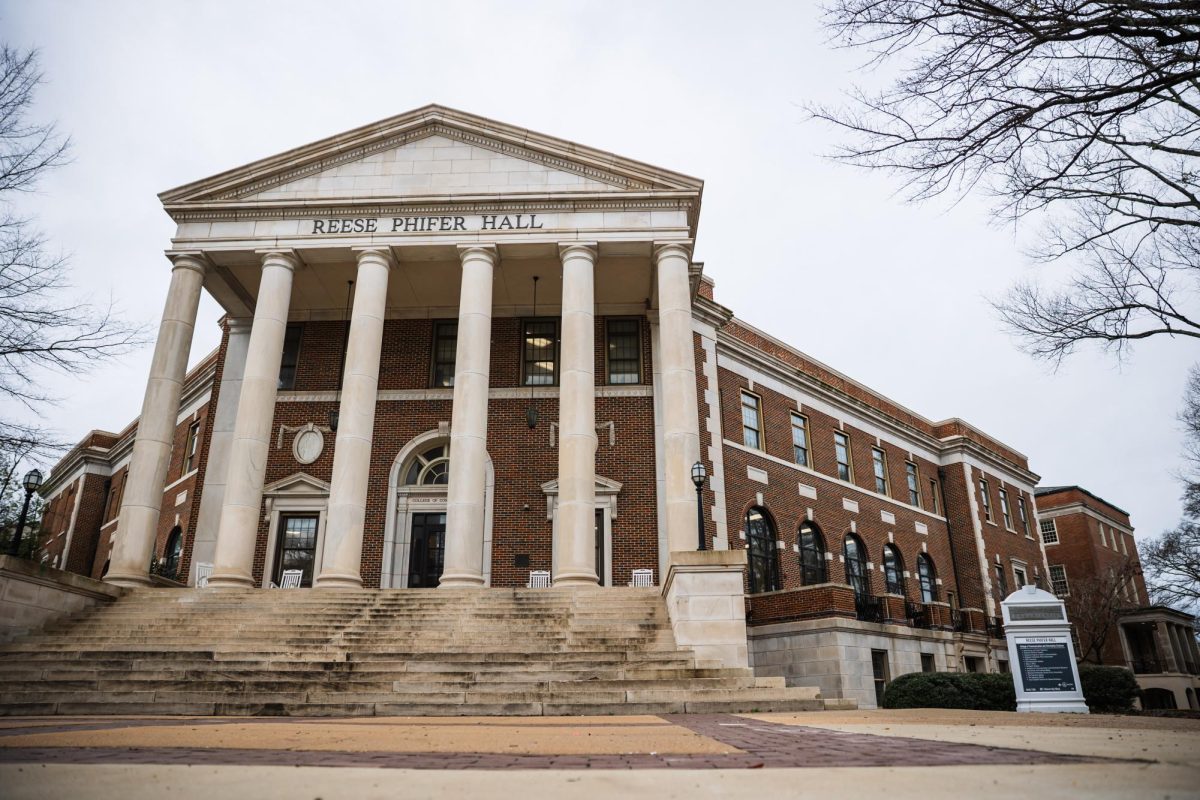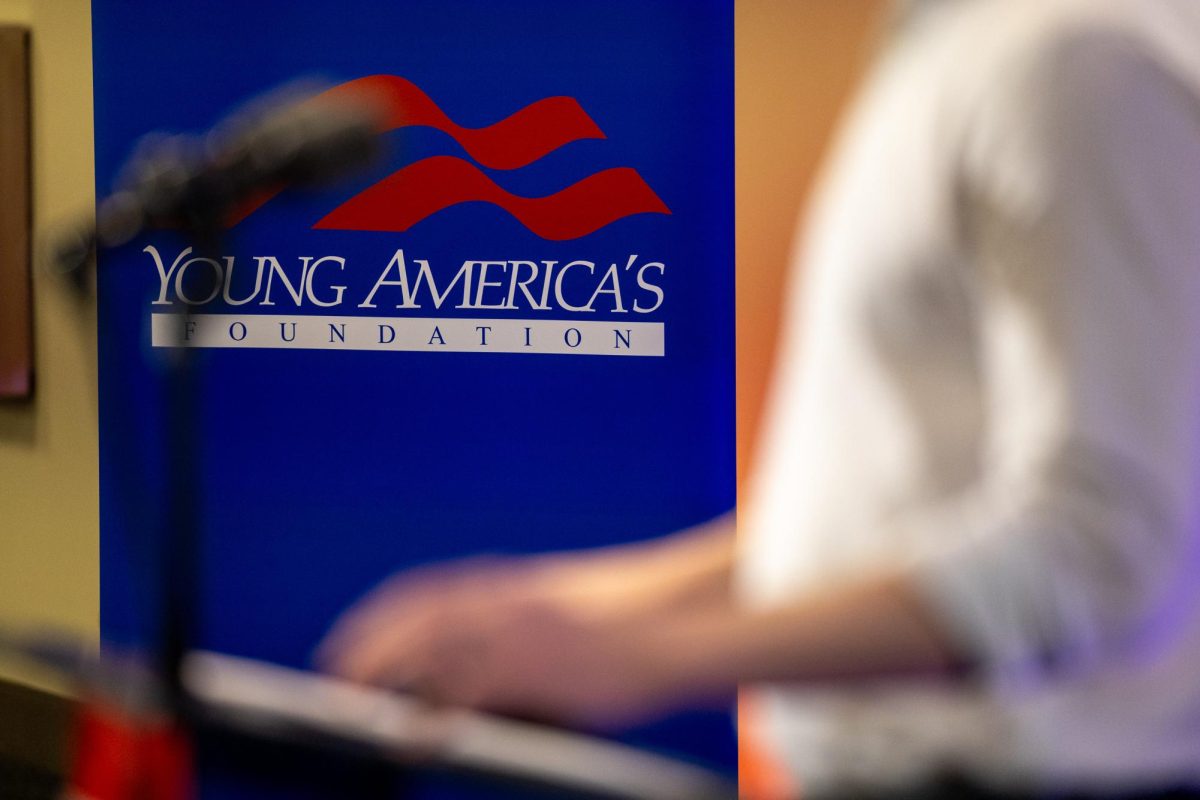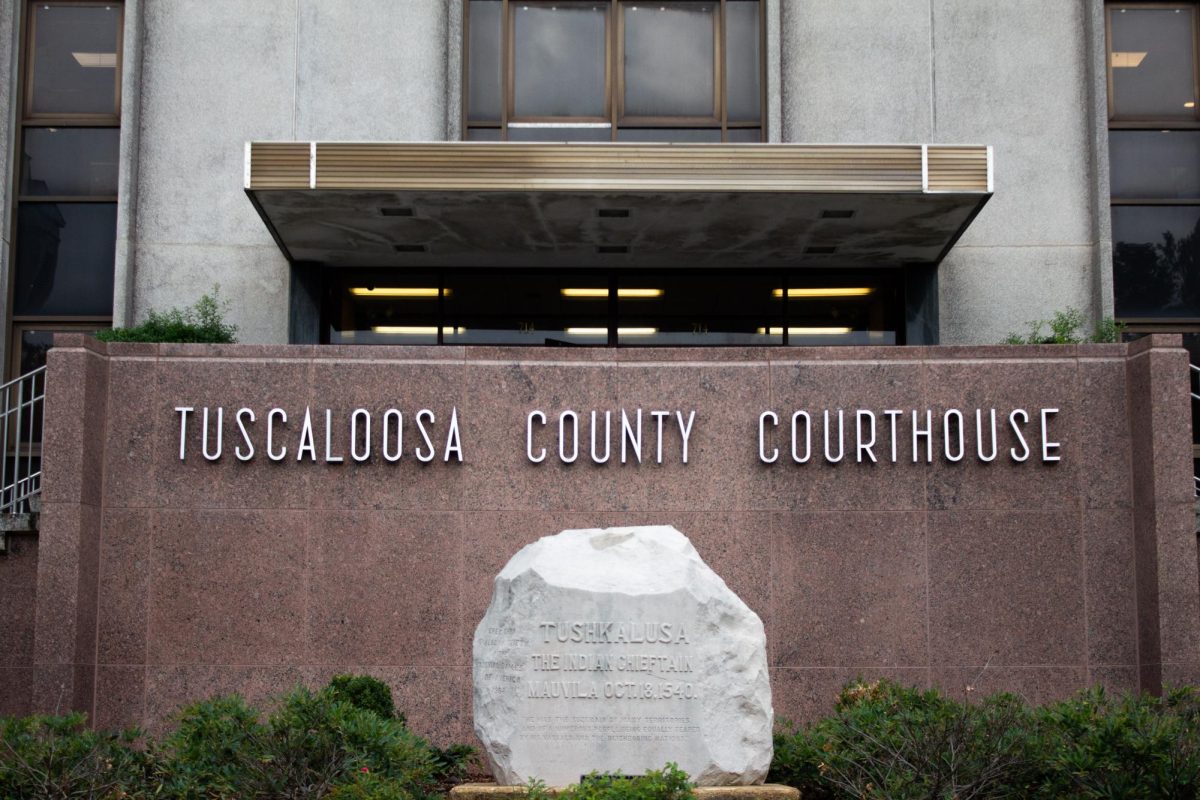Though Vivian Malone and James Hood walked through the doors of Foster Auditorium nearly 50 years ago in the national spotlight, the glare of The University of Alabama community was all that accompanied them through subsequent doorways.
As the first black undergraduates to enroll at the University, they walked into classrooms, dorms and dining halls alone, enduring threats and hatred on campus as the civil rights movement raged on across the South and they worked toward their degrees.
On March 1, their courage was memorialized as members of the 13th annual Faith & Politics Institute Civil Rights Pilgrimage, chaired by U.S. Representative John Lewis, stopped at Foster Auditorium. Vivian Malone’s younger sister, Dr. Sharon Malone, and former Governor George Wallace’s daughter, Peggy Wallace Kennedy, both spoke about their memories of the fateful Stand in the Schoolhouse Door on June 11, 1963.
Sharon Malone told the crowd she has made many trips to The University of Alabama to commemorate the Stand, but this is the first time without her sister. Vivian Malone died in 2005, and James Hood passed away earlier this year.
Sharon Malone said that as a little kid, she simply remembers growing up in the shadow of a famous big sister. When asked why she made the decision to pursue an education in such a hostile environment, Vivian told her sister she was inspired by the Brown v. Board of Education Supreme Court case.
“Up until that point, everyone in my family in Alabama had attended segregated schools,” Sharon Malone said. “We are sixth generation Alabamians. My family has been in Alabama almost as long as there has been a state of Alabama. My sister said if she did not have the right to attend The University of Alabama, who did?”
Vivian told Sharon that when she walked into her first class, every student got up and left. She stayed, and the professor continued the lecture.
“I can only imagine how lonely she was,” Sharon Malone said. “But she stayed the course.”
Though Sharon Malone remembers the events from her childhood, she said she views the historical moment differently now that she is the parent of a college-aged daughter.
“Even more amazing to me is the courage and faith – and I do mean faith – that my parents must have had to deliver their oldest daughter into the hands of the Justice Department,” she said. “On advice from counsel, my parents were at home. This was before email and cellphones, and they had to wait and hope that all would be well.”
And while the Malones waited on news of Vivian’s success and safety on that day, another family in Alabama awaited news of the confrontation as well.
Peggy Wallace Kennedy was 13 years old, spending the summer day at a lake-side cabin with her mother. Kennedy described to Friday’s crowd how her mother paced up and down the house’s pier, nursing a cigarette, while George Wallace – father, husband and governor – conducted a carefully orchestrated performance in front of national media in Tuscaloosa before being asked to step aside.
Kennedy said the day was the death of her mother’s hope for a simple life, and the beginning of the family’s life beneath the shadow of the school house door.
“The day was never mentioned again. It was as if it had never happened,” Kennedy said. “There was never an offer of explanation from my father. When the subject was broached, it was brushed aside. Even at the time, it all seemed so illogical. As I grew older, it seemed even more so.”
Wallace later apologized for his actions, reaching out to discuss forgiveness with both students, and Kennedy referenced the many positive legacies he left in Alabama. Despite this, she recognized that her father will live on in the shadow of the school house door.
“But still, there is this asterisk of June 11, 1963, that will forever define and denote the character of George Wallace,” Kennedy said.
Kennedy said she made her own journey to Tuscaloosa to stand in the spot George Wallace once stood as a testament to change, so that she can give her sons a conversation and explanation for when they ask about their grandfather.
“Today I rise and proclaim that for too many Americans, the schoolhouse door of opportunity and equality and freedom remains closed,” she said. “Today I rise to condemn the politics of exclusion that runs rampant in America. For America is at her best when she embraces all of us, protects the least of us and offers her bounty of hope and prosperity to not just some of us.”
Though Friday’s event was held to commemorate a vital part of the state’s and The University of Alabama’s history, Kennedy urged the audience to not just remember how far things have come, but to commit to the problems of the future.
“There will be no more stands in the school house door, but the insidious underbelly of discrimination still lies like a pall over America,” she said. “Today I rise to ask each of you to stand in the school house door every day – to encourage a child, to comfort a parent, to speak, to walk and to pray for justice for all in our country, in our lifetime.”
Leading in today’s Crimson White:
Freshman Hakansson breaks school record in men’s weight throw
Local six-piece band’s album to include graphic novel
Senior Alexis Paine breaks 3rd UA record in women’s pole vault








